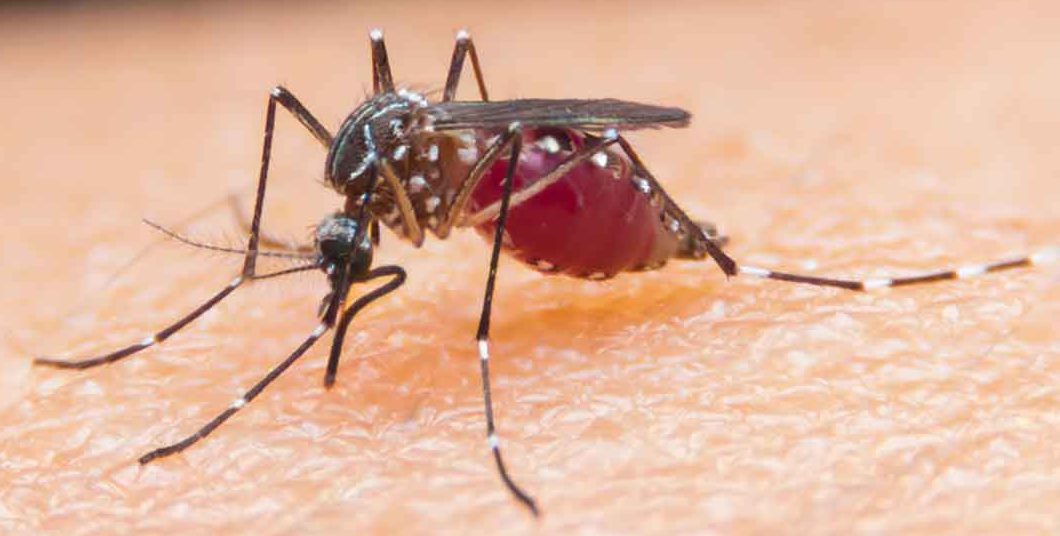How to Treat Bug Bites

Beyond the itch or sting, bug bites can have long-term health implications. The best tactic is to keep insects away. Here's how to treat bug bites this summer.
Insects are more than an annoyance to swat away. A bee sting can be life-threatening if you’re allergic. Mosquitoes transmit West Nile virus and other dangerous viruses. Ticks also carry many chronic infections, including Lyme disease.
Given the long-term health implications of bug bites, the best tactic is to keep insects away. “Prevention is the most important message when it comes to bug bites, and most bites can be avoided with some common-sense strategies,” said dermatologist Ronald P. Rapini, MD, FAAD.
To avoid the germs bugs transmit, arm yourself against bites, spraying on an insect repellant containing DEET, oil of lemon eucalyptus, or picardin before you go outside. Wear long pants and a long-sleeved shirt if you plan to be in a wooded area.
If you get bitten or stung, you should be able to care for it yourself.
“Most bug bites and stings can be safely treated at home with topical medication, such as hydrocortisone cream or ointment, or an oral antihistamine to reduce the itch,” said board-certified dermatologist Margaret E. Parsons, MD, FAAD, a dermatologist in Sacramento, Calif. “Sometimes, however, a bug bite or sting could turn into something serious.”
YOU MIGHT ALSO LIKE: How to Avoid Bees, Mosquitoes, and Snakes
Here’s how you can treat bug bites and bee stings.
Bee stings
Bees usually won’t bother you unless you swat at them or disturb their hive — with the exception of Africanized “killer” bees, which sometimes go on the attack. A single sting isn’t likely to be dangerous unless you’re allergic, but hundreds of stings can be deadly. In addition to the pain, a bee’s stinger inserts venom into your body that makes your skin swell.
To treat a bee sting, first scrape the stinger with the side of a credit card to remove it. Don’t squeeze the top: You’ll only force more venom into the wound. Wash the site with soap and water, and then hold ice on it to bring down swelling and relieve pain. You can also take an antihistamine or anti-inflammatory medicine like ibuprofen (such as Motrin or Advil).
If you have an allergic reaction, such as anaphylaxis — trouble breathing, swollen lips or tongue, racing heartbeat, nausea, vomiting, or dizziness — call 9-1-1 for emergency help. Use an epinephrine pen, if you have one, to treat the reaction.
Mosquito bites
Mosquito bites don’t need much in the way of treatment. Apply calamine lotion or hydrocortisone cream if the itch bothers you, and try not to scratch until the bump goes away. The bigger worry with mosquito bites is the risk of diseases they transmit.
Once you’ve been bitten, watch for signs that you might have been infected with a mosquito-borne illness. A fever, rash, joint and muscle pain, and headaches are signs of West Nile, chikungunya, and other mosquito-borne viruses. If symptoms appear and you know you’ve been bitten, call your doctor.
Tick bites
If you notice a tick walking on or clinging to your skin after you’ve spent time outside, remove it as quickly as you can. If the tick hasn’t attached, simply pull it off. A tick that hasn’t started feeding can’t transmit Lyme or other tick-borne diseases.
To remove a tick that has grabbed hold of your skin, use a pair of tweezers. Grasp the tick as close to your skin as possible. Pull gently with an even pressure. Try not to squeeze the tick’s body because you could unintentionally push the infectious substance into your skin.
Put the tick in a container of soapy water or alcohol and report the bite to your doctor. Depending on the type of tick that bit you and how long it was attached to your skin, the doctor might recommend a preventive course of antibiotics.
Sometimes you won’t realize you’ve been bitten until you see a red, bulls-eye shaped rash — sometimes a sign of Lyme infection that usually appears a week or two after the bite occurred.
“Ticks can be so tiny that most people who get Lyme disease don’t recall a tick bite,” says Adriana Marques, MD, a Lyme disease expert at the National Institutes of Health. If you notice symptoms like muscle or joint pain, extreme fatigue, or headache, call your doctor. “The earlier you get treated, the better.”
Updated:
October 24, 2023
Reviewed By:
Janet O’Dell, RN